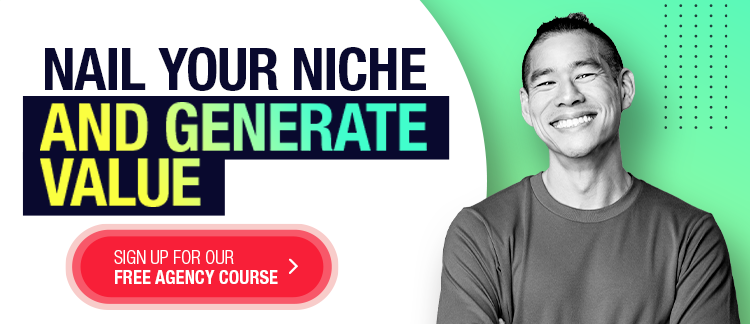There are some things in life that just click. Like cocoa and marshmallows, Sundays and brunch, and Fred Astaire and Ginger Rogers. Great entrepreneurs, the type who build businesses and leave legacies, possess a similar ability to bond with prospects and clients. Even if the 2 parties don’t make for an obvious pairing, these entrepreneurs are able to develop the relationship so effectively that you can almost hear an audible “click” when they engage in conversation.
Building Rapport with Clients
What is rapport building? Questions like this are essential as you compile your freelancing toolkit. In its purest form, rapport is a feeling of understanding and trust between you and someone else. It’s strengthening connections to the point that they feel meaningful, rather than transactional.
While some entrepreneurs proudly take a “lone wolf” approach to their business, they are seriously limiting their prospects. You must collaborate with others to build anything worth remembering. Reciprocity in the business world doesn’t just give you forward momentum—it also provides a soft landing when you stumble. And make no mistake—the best entrepreneurs often experience the most epic stumbles.
“Unless you are Elon Musk and you have some truly proprietary science, which is still a fleeting proprietary thing, the only thing you have is relationships with consumers,” explains Katia Beauchamp, cofounder and CEO of Birchbox. “And consumers wanting you to win, caring about you, the reciprocity of care, is unstoppable. You can really stub your toe when a consumer wants you to win. You can really miss and you have another chance because there’s care on both sides. That’s what a relationship means. It isn’t just about trust on our side, it’s reciprocal.”
To put this concept into perspective, it’s helpful for you to assess your own relationship with brands. There are probably many brands that you are happy to buy from, but would leave in a heartbeat if they couldn’t fulfill their side of the transaction. For example, if you were to open your box expecting a microwave and it’s instead filled with wool socks, you’d take that as a sign that you needed to move on. There would be no mourning period.
But there are certain companies that could accidentally send you a box of wool socks and you’d probably laugh out loud and then call their customer service line to get the order corrected. Where rapport exists, sales thrive and survive.
What Is Rapport Building in the Freelancing World?
Successful freelancers must live in a proactive world where “you eat what you kill,” as independent attorneys often say. And aside from engaging clients on the front end, you will undoubtedly fumble the delivery at times. You might not leave a box of wool socks on the client’s porch, but your final work could miss the mark in a major way.
Thus, you’ve got to generate the kind of reciprocity that endures from pitch to postmortem. It’s through these strong connections that you’re not only set up for the biggest success, but also given the opportunity to fail.
How do you go about building rapport with clients like this? It’s a 2-way street, obviously, so it’s not something you can conjure on your own. But here are 7 tips that will help you spark something special with your freelance clients. And if you fan the flames carefully, you’ll soon enjoy the quality of rapport that many entrepreneurs can only dream about.
buy tadalista online buy tadalista online no prescription
Start with Respect
This doesn’t mean you pander to clients by complimenting their sweater or telling them that it’s “an absolute honor to meet them.” Respect is demonstrated through a thousand little details, such as promptly returning emails and arriving to meetings a couple of minutes early. Your respect also emanates from your work. Freelancers who care about quality also care about their clients. And when you do your best work, that premier quality shows how highly you regard the client.
Speak Their Language
This suggestion might sound obvious, as it’s difficult to bond with someone over language barriers. But it goes far beyond the sharing of a similar spoken language. To build rapport, you need to observe your clients’ communication styles and then compliment them. If the client is a storyteller, politely listen to their stories and then ask follow-up questions. Show that you’re listening and then convey your own messages in a similar style. If the client values brevity, on the other hand, check your stories at the door. Deliver succinct messages that get straight to the point.
Dress Their Style
People often feel uncomfortable when their clothes are out of sync with those around them. If you don’t believe us, ask the graphic designer who wore a Halloween costume during the first week at her new job, only to discover that nobody else in the office felt the need to dress up. Or the copywriter who showed up to the job interview in a pinstripe suit, while the interviewers lounged around in cargo shorts. Once you know your client’s style, you can match it with your wardrobe. It might be possible to misinterpret this suggestion and assume that the idea is to dress just like your clients and become a mimic. This is definitely not the idea. What you’re trying to do is remove friction. So if you can help the client feel more comfortable by dressing at a similar level, you’re on the right track.
buy kamagra gold online buy kamagra gold online no prescription
Seek Common Ground
The most common type of chemical bond among living organisms is a covalent bond. It occurs when the 2 elements share an electron. You can introduce a similar type of bonding by finding “electrons” that you can share with clients. Perhaps you both enjoy golf. Or you went to the same school. Or you share a love for landscape photography. You’ll never know unless you ask rapport-building questions that allow you to build a bridge of common understanding.
Use Candor
One of the fastest ways to forge a connection with someone is using unvarnished honesty. Don’t be afraid to be vulnerable. Whether that means sharing a limitation to your abilities or informing the client that you won’t be able to meet a deadline, the conversations that follow these admissions can be powerful for building rapport with clients. Remember that this candor should be able to go both ways. So don’t take offense when a client shares honest but firm feedback on your work. When both parties know that their opinions matter, the trust level grows rapidly.
Get Some Quality Time
It’s never possible for freelancers to meet all their clients face-to-face. From time constraints to travel advisories, we must use email and other communication methods. But putting a face behind the name is crucial for building a relationship. When a face-to-face meeting isn’t practical, simply schedule a video chat. The technology is so prevalent and intuitive now that there’s no excuse for not getting screen time with your clients.
Use Empathy
If you want to connect with clients on a deeper level, empathy is crucial. This is because anytime reciprocity is in play, both parties must be able to see things from the other’s perspective. It’s important to note that empathy doesn’t mean you guess at what the other is feeling. Use rapport-building questions to learn about their problems and offer informed solutions.
How to Build Rapport After It’s Lost
We know that you’re a true professional and will always bring your best to customer relationships. But the fact is that rapport with clients is lost from time to time.
As long as you’ve established a relationship based on authenticity and reciprocity, you should be able to communicate with the client. Identify the cause for the rift and humbly offer solutions. If an apology is needed, offer it willingly. If you’re the one who has been wronged, don’t withhold forgiveness. And if it’s a separate individual at the client’s company that has caused the friction, work together with the client to find a solution.
Moving forward, focus on the strengths that have fostered your relationship in the past. It can be difficult to move past disappointments, but you’ll find it’s easier when both parties get back to enjoying one another. Ask rapport-building questions, rebuild the common ground, and most importantly, deliver the best work of your life.
For more insights into how you can develop your business and make a name for yourself as a freelancer, check out our extensive library of training courses. This free curriculum comes from proven entrepreneurs who know how to build rapport with clients. If you’re ready to learn, they’re more than willing to teach.

















